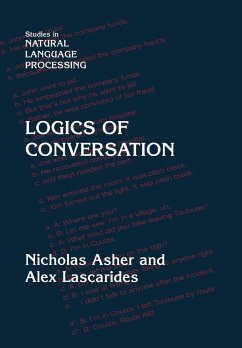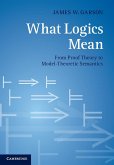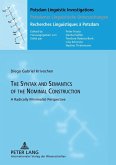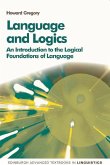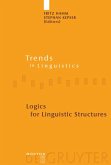People often mean more than they say. Grammar on its own is typically insufficient for determining the full meaning of an utterance; the assumption that the discourse is coherent or 'makes sense' has an important role to play in determining meaning as well. Logics of Conversation presents a dynamic semantic framework called Segmented Discourse Representation Theory, or SDRT, where this interaction between discourse coherence and discourse interpretation is explored in a logically precise manner. Combining ideas from dynamic semantics, commonsense reasoning and speech act theory, SDRT uses its analysis of rhetorical relations to capture intuitively compelling implicatures. It provides a computable method for constructing these logical forms and is one of the most formally precise and linguistically grounded accounts of discourse interpretation currently available. The book will be of interest to researchers and students in linguistics and in philosophy of language.

